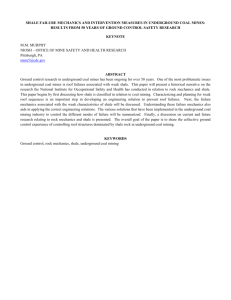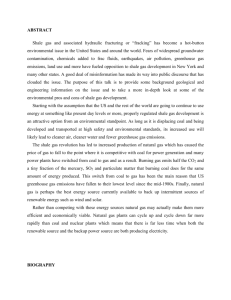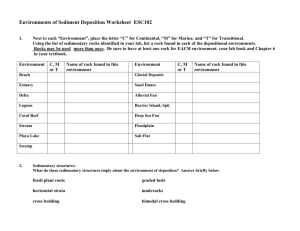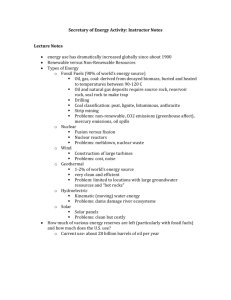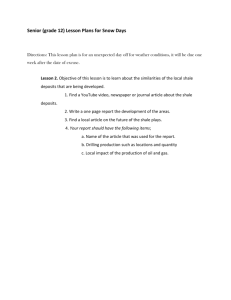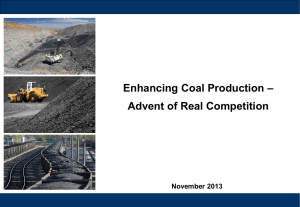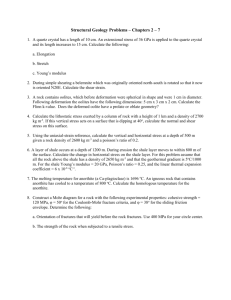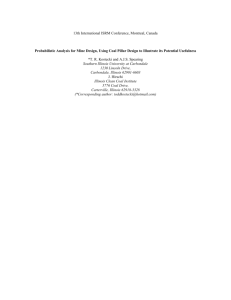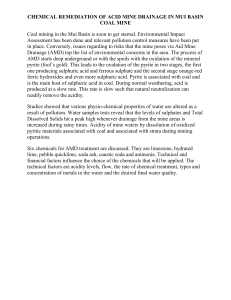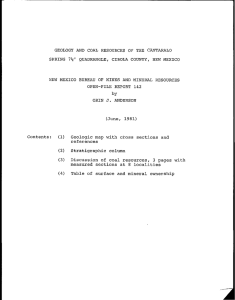Roof Fall Geology
advertisement
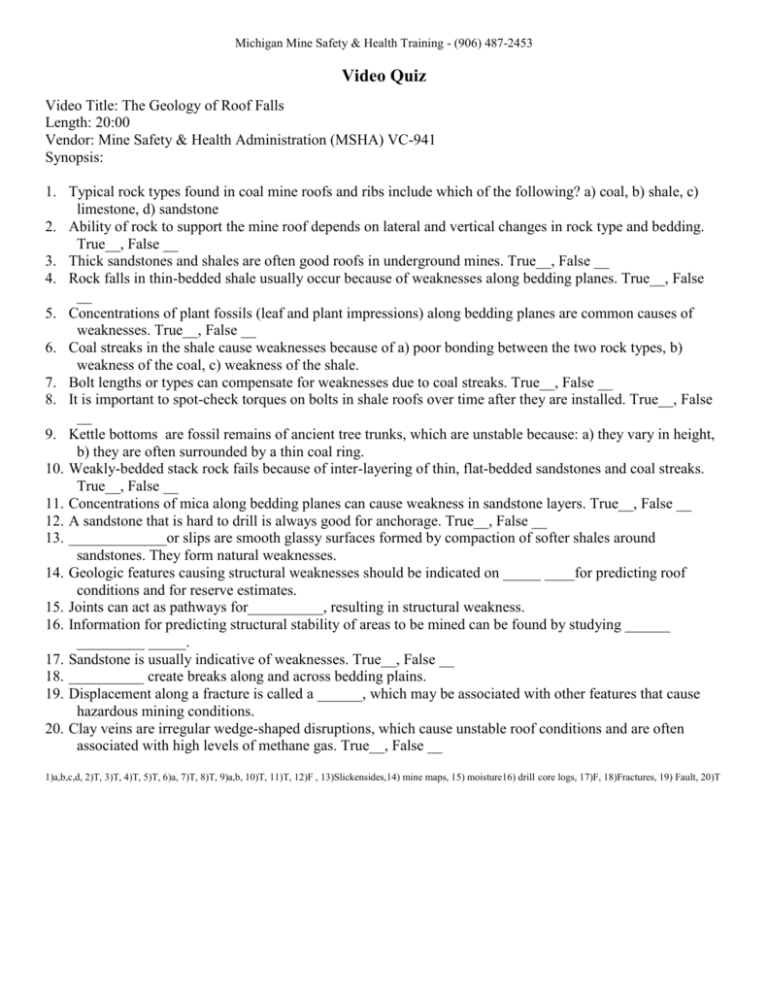
Michigan Mine Safety & Health Training - (906) 487-2453 Video Quiz Video Title: The Geology of Roof Falls Length: 20:00 Vendor: Mine Safety & Health Administration (MSHA) VC-941 Synopsis: 1. Typical rock types found in coal mine roofs and ribs include which of the following? a) coal, b) shale, c) limestone, d) sandstone 2. Ability of rock to support the mine roof depends on lateral and vertical changes in rock type and bedding. True__, False __ 3. Thick sandstones and shales are often good roofs in underground mines. True__, False __ 4. Rock falls in thin-bedded shale usually occur because of weaknesses along bedding planes. True__, False __ 5. Concentrations of plant fossils (leaf and plant impressions) along bedding planes are common causes of weaknesses. True__, False __ 6. Coal streaks in the shale cause weaknesses because of a) poor bonding between the two rock types, b) weakness of the coal, c) weakness of the shale. 7. Bolt lengths or types can compensate for weaknesses due to coal streaks. True__, False __ 8. It is important to spot-check torques on bolts in shale roofs over time after they are installed. True__, False __ 9. Kettle bottoms are fossil remains of ancient tree trunks, which are unstable because: a) they vary in height, b) they are often surrounded by a thin coal ring. 10. Weakly-bedded stack rock fails because of inter-layering of thin, flat-bedded sandstones and coal streaks. True__, False __ 11. Concentrations of mica along bedding planes can cause weakness in sandstone layers. True__, False __ 12. A sandstone that is hard to drill is always good for anchorage. True__, False __ 13. _____________or slips are smooth glassy surfaces formed by compaction of softer shales around sandstones. They form natural weaknesses. 14. Geologic features causing structural weaknesses should be indicated on _____ ____for predicting roof conditions and for reserve estimates. 15. Joints can act as pathways for__________, resulting in structural weakness. 16. Information for predicting structural stability of areas to be mined can be found by studying ______ _________ _____. 17. Sandstone is usually indicative of weaknesses. True__, False __ 18. __________ create breaks along and across bedding plains. 19. Displacement along a fracture is called a ______, which may be associated with other features that cause hazardous mining conditions. 20. Clay veins are irregular wedge-shaped disruptions, which cause unstable roof conditions and are often associated with high levels of methane gas. True__, False __ 1)a,b,c,d, 2)T, 3)T, 4)T, 5)T, 6)a, 7)T, 8)T, 9)a,b, 10)T, 11)T, 12)F , 13)Slickensides,14) mine maps, 15) moisture16) drill core logs, 17)F, 18)Fractures, 19) Fault, 20)T
